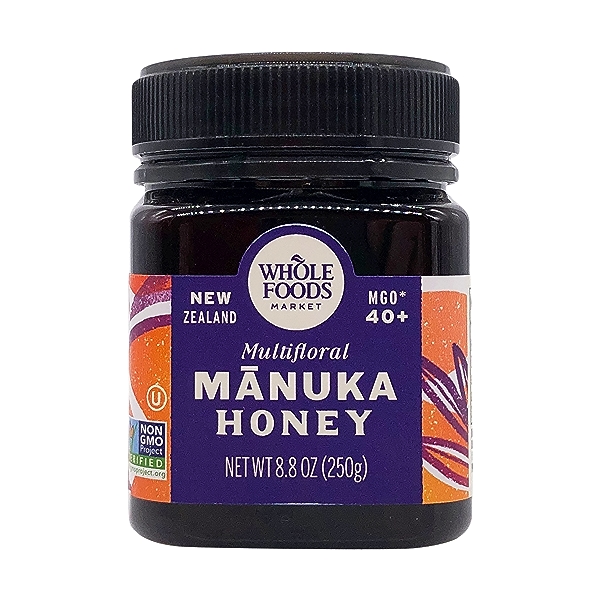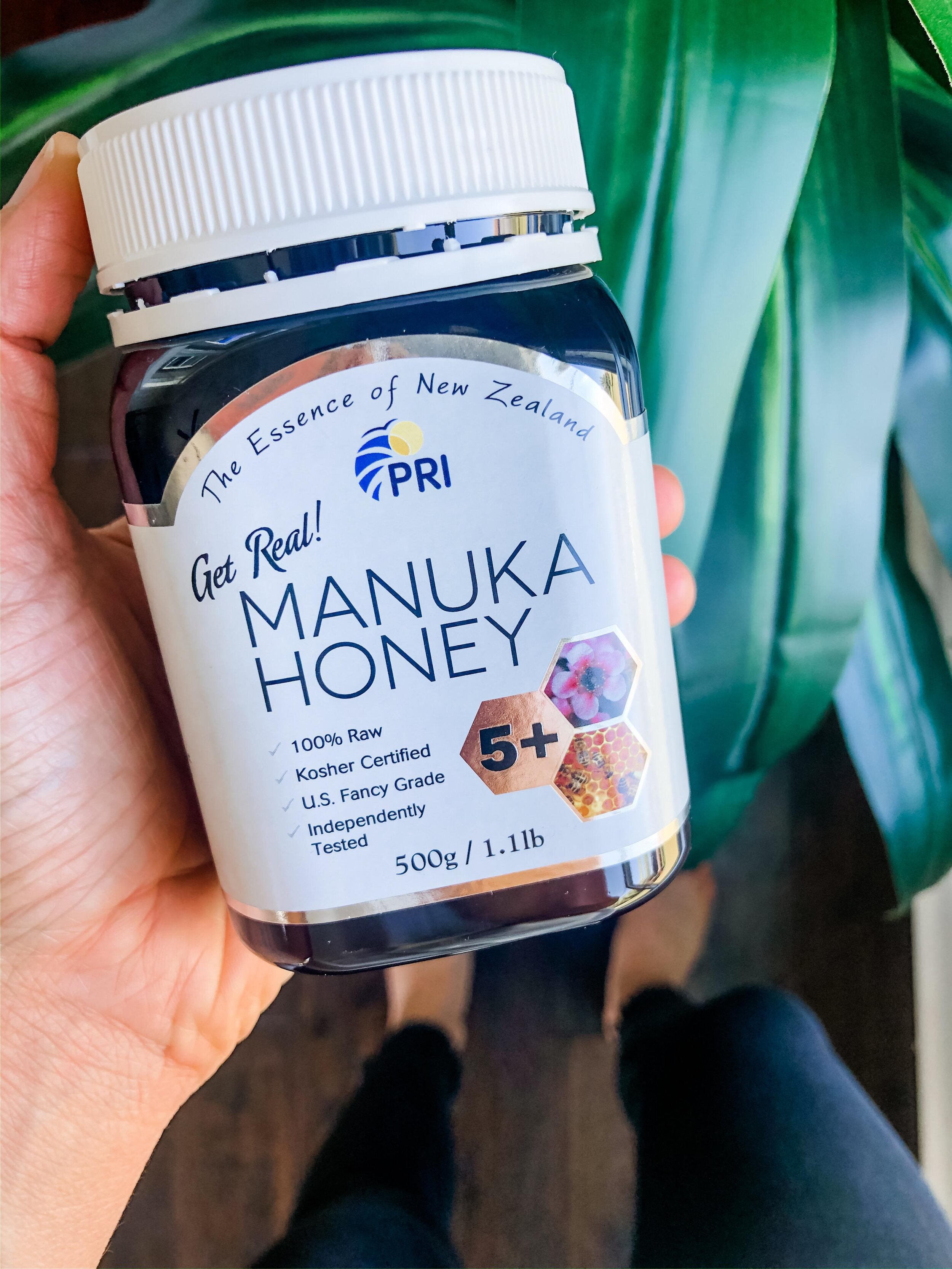
If you’re on the lookout for a natural remedy that not only tastes delicious but also offers a myriad of health benefits, then look no further than Manuka honey. This extraordinary honey, sourced from New Zealand, has become hugely popular worldwide, and for good reason. With its unique properties and numerous medicinal uses, Manuka honey has become a staple in many households. Now, you can conveniently find this golden goodness at your local Whole Foods store. So, why not take a trip to Whole Foods and discover the incredible benefits of Manuka honey for yourself?
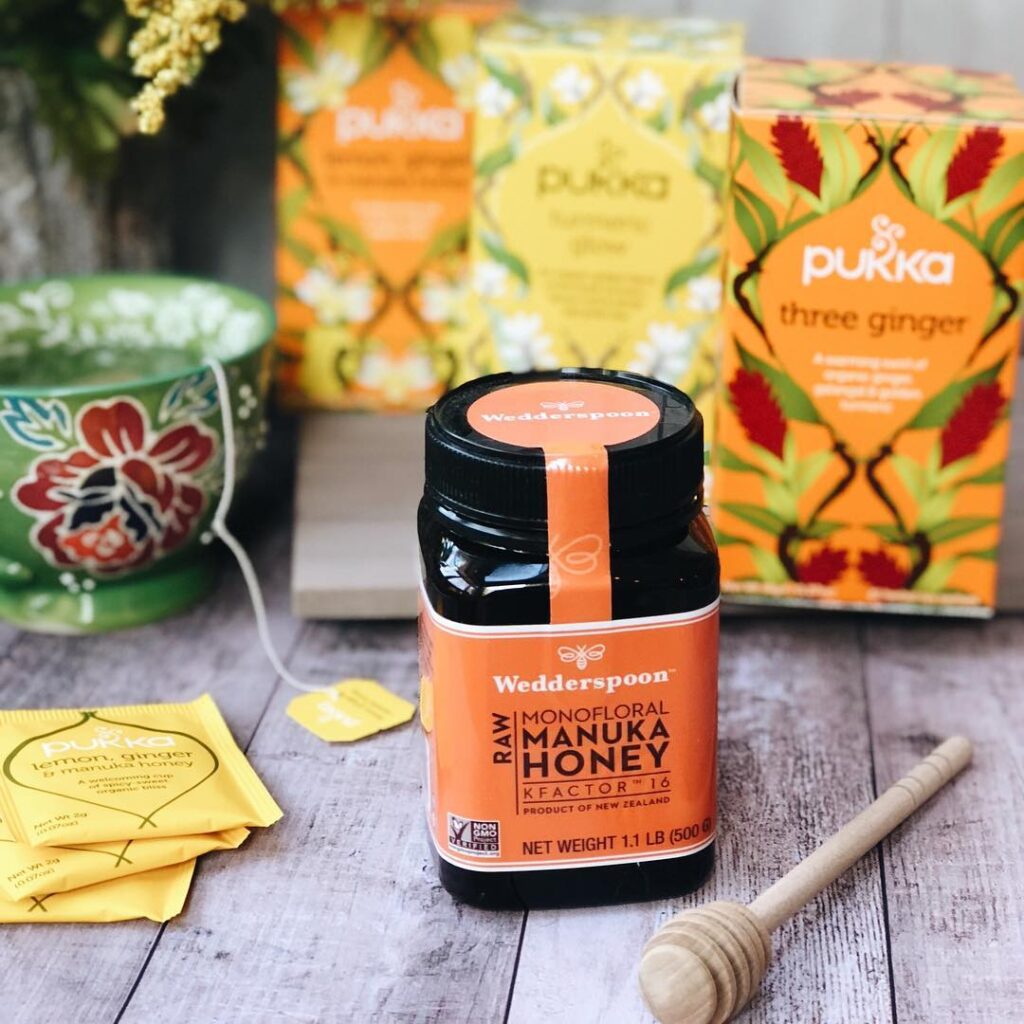
The Origins of Manuka Honey
New Zealand’s Unique Environment
Manuka honey is a special type of honey that originates from the lush landscapes of New Zealand. New Zealand is known for its unique environment, which includes vast open spaces, pristine forests, and an abundance of native flora and fauna. This environment plays a crucial role in the production of manuka honey, as it allows the manuka tree, also known as Leptospermum scoparium, to flourish.
The manuka tree is a native tree to New Zealand and is the primary source of nectar for honeybees that produce manuka honey. The tree’s white or pink flowers bloom for only a short period, making the honeybees diligently collect nectar during this time. The rich and diverse ecosystem of New Zealand guarantees that the manuka honey derived from this environment is of the highest quality and holds extraordinary properties.
Maori Traditional Use
The Maori, the indigenous people of New Zealand, have a deep connection with the land and its resources. For generations, the Maori people have utilized the medicinal properties of manuka honey in their traditional remedies. They have recognized its unique healing properties and harnessed its antibacterial and anti-inflammatory qualities.
The Maori people have used manuka honey to treat various ailments, including wounds, burns, and sore throats. Their profound knowledge of the beneficial effects of manuka honey has been passed down through generations, reinforcing its importance and value in the Maori culture.
What Makes Manuka Honey Special
The Unique Manuka Factor (UMF)
One of the factors that distinguish manuka honey from other types of honey is the presence of the Unique Manuka Factor (UMF). UMF is a grading system that measures the antibacterial potency of manuka honey. It is an internationally recognized standard that guarantees the quality and authenticity of the honey.
The UMF rating indicates the level of methylglyoxal (MGO) present in the honey, which is the compound responsible for its antibacterial activity. A higher UMF rating implies a higher concentration of MGO, thus indicating a more potent and therapeutic honey.
Antibacterial and Healing Properties
Manuka honey is renowned for its exceptional antibacterial and healing properties. Numerous scientific studies have demonstrated its effectiveness against various pathogens, including antibiotic-resistant bacteria, such as MRSA. The unique combination of hydrogen peroxide, methylglyoxal, and other compounds present in manuka honey allows it to combat infections and promote healing.
The antibacterial properties of manuka honey make it an excellent choice for wound dressings, as it can create a barrier against harmful bacteria while promoting the growth of new tissue. Its ability to stimulate the body’s natural healing mechanisms contributes to its widespread use in traditional and modern medicine.
Different Grading Systems
In addition to the UMF grading system, manuka honey may also be categorized using other grading systems, such as the Total Activity (TA) or the MGO rating. The TA rating measures the overall antimicrobial activity of the honey, taking into account not only the presence of MGO but also other components that contribute to its therapeutic benefits.
On the other hand, the MGO rating specifically indicates the concentration of methylglyoxal in the honey. While the UMF rating is the preferred grading system due to its comprehensive assessment of the honey’s quality, these alternative grading systems can still provide valuable information for consumers.
Choosing the Right Manuka Honey
Understanding UMF Ratings
When choosing manuka honey, it is essential to understand the UMF rating system to select the right product for your needs. The UMF rating indicates the concentration of methylglyoxal, which determines the honey’s potency and therapeutic effects.
A UMF rating of 10 to 15 is considered ideal for general health maintenance, while a rating of 16 or higher is recommended for therapeutic use. It is crucial to note that the higher the UMF rating, the higher the price of the honey. However, investing in higher-rated manuka honey ensures that you are getting the maximum benefits and value for your money.
Certified Authentic Manuka Honey
To ensure that you are purchasing genuine manuka honey, it is important to look for products that carry the UMF certification mark. The UMF certification mark guarantees that the honey has undergone rigorous testing and meets the standards set by the Unique Manuka Factor Honey Association (UMFHA).
Additionally, the UMF certification mark provides assurance that the honey is sourced and produced in New Zealand, ensuring its authenticity and quality. Be cautious of honey labeled as “manuka” from other countries, as it may not possess the same unique properties and benefits as genuine New Zealand manuka honey.
Factors to Consider
When choosing the right manuka honey for your needs, it is important to consider several factors. Firstly, consider the purpose for which you intend to use the honey. If you are seeking its therapeutic benefits, opt for a higher UMF-rated honey.
Secondly, consider your budget. While higher-rated manuka honey tends to be more expensive, it is worth the investment for its exceptional quality and effectiveness. However, if you are simply looking for a natural sweetener or general health maintenance, a lower-rated honey may suffice.
Lastly, consider the credibility of the brand and its adherence to sustainable and ethical practices. Look for reputable brands that prioritize transparency, quality, and support for the local communities and environment.
Health Benefits of Manuka Honey
Boosts Immunity
Manuka honey has been found to have immune-boosting properties, making it a valuable addition to your daily health routine. It contains antioxidants and antimicrobial compounds that help strengthen the immune system and protect against harmful pathogens.
Regular consumption of manuka honey can help support your body’s natural defenses, reducing the risk of infections and illnesses. Its unique composition and potent antibacterial properties make it an ideal choice for maintaining overall health and well-being.
Soothes Sore Throat and Cough
If you’re experiencing a sore throat or cough, manuka honey can provide soothing relief. Its viscous nature forms a protective coating on the throat, soothing irritation and reducing discomfort. The antibacterial properties of manuka honey also help to combat bacteria commonly associated with throat infections.
To alleviate symptoms, simply consume a spoonful of manuka honey or mix it with warm water or herbal tea. Not only will it provide immediate relief, but it will also offer its potent healing properties to aid in the recovery process.
Aids Digestive Health
Manuka honey is beneficial for maintaining digestive health due to its prebiotic properties. Prebiotics are non-digestible fibers that serve as a food source for beneficial gut bacteria. By promoting the growth of healthy gut bacteria, manuka honey helps to maintain a balanced and robust digestive system.
Consuming manuka honey regularly can aid in relieving symptoms of gastrointestinal issues, such as indigestion, acid reflux, and bloating. Its natural sugars also provide an energy source for the body, making it a healthier alternative to refined sugars.
Promotes Wound Healing
Manuka honey’s potent antibacterial and wound-healing properties make it an excellent natural remedy for promoting the healing of wounds and burns. The honey creates a protective barrier over the wound, preventing infection and stimulating the growth of new tissue.
Applying manuka honey to minor cuts, burns, and ulcers can speed up the healing process and reduce the risk of scarring. Its ability to promote tissue regeneration and reduce inflammation makes it a trusted choice for wound care.
Improves Skin Health
In addition to its wound-healing properties, manuka honey is also beneficial for overall skin health. Its antibacterial and anti-inflammatory properties help to combat acne-causing bacteria, reduce redness, and soothe irritation.
Using manuka honey as a face mask or incorporating it into skincare products can help improve the complexion, reduce the appearance of blemishes, and promote a healthy glow. Its natural moisturizing properties make it suitable for all skin types, including sensitive skin.
Relieves Allergies
If you suffer from allergies, incorporating manuka honey into your daily routine may provide relief. Manuka honey has been found to have antiallergenic properties, reducing the symptoms associated with seasonal allergies, such as sneezing, itching, and congestion.
The honey contains trace amounts of pollen from the manuka tree, which can desensitize the body to other common allergens. Consuming a teaspoon of manuka honey daily, especially leading up to allergy season, may help alleviate symptoms and support overall respiratory health.
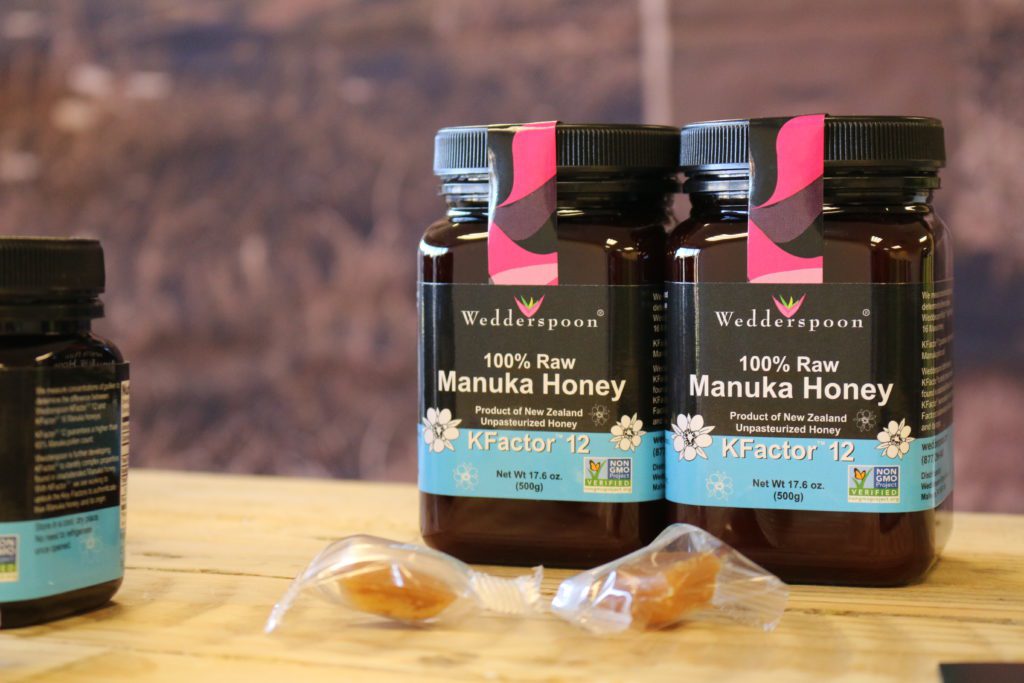
Using Manuka Honey in Everyday Life
As a Natural Sweetener
Manuka honey can elevate your culinary experiences as a delicious and healthier alternative to refined sugars. Its unique flavor profile, which is both bold and aromatic, adds a distinct touch to a variety of dishes and beverages.
You can use manuka honey to sweeten your morning oatmeal, drizzle it over pancakes or waffles, or add it to homemade salad dressings for a touch of sweetness. Whether in baked goods, marinades, or beverages, manuka honey enhances the taste while providing its exceptional health benefits.
In Tea and Drinks
Manuka honey can also be enjoyed as a natural sweetener in a warm cup of tea or a refreshing glass of cold drink. Its rich and robust flavor pairs well with various herbal teas, such as chamomile or peppermint, providing a soothing and comforting experience.
For an invigorating twist, add a spoonful of manuka honey to freshly squeezed lemonade or mix it into your favorite smoothie recipe. The possibilities are endless, and the addition of manuka honey elevates your beverages with its unique taste and health benefits.
As a Face Mask
Creating a simple yet effective face mask using manuka honey can enhance your skincare routine. Its antimicrobial and moisturizing properties make it an excellent choice for nourishing and rejuvenating the skin.
To create a manuka honey face mask, apply a thin layer of honey to clean, dry skin and leave it on for 15-20 minutes. Rinse with warm water, followed by a splash of cold water to close the pores. This natural face mask can help improve skin texture, reduce inflammation, and leave your skin looking fresh and glowing.
In DIY Beauty Products
Manuka honey’s exceptional properties make it an excellent ingredient for DIY beauty products. You can incorporate it into homemade body scrubs, lip balms, and hair masks to nourish and moisturize your skin and hair.
Mix manuka honey with ingredients like coconut oil, brown sugar, or essential oils to create personalized beauty products tailored to your specific needs. Not only will these natural alternatives help improve the condition of your skin and hair, but they will also eliminate the use of potentially harmful chemicals found in commercial products.
For Minor Burns and Cuts
Due to its remarkable wound-healing properties, manuka honey can effectively treat minor burns and cuts. Its antibacterial and anti-inflammatory properties help prevent infection and promote the healing process.
To use manuka honey for minor burns or cuts, apply a thin layer to the affected area and cover it with a sterile bandage. Reapply the honey and change the bandage daily until the wound has healed. This natural remedy can significantly aid in the healing process and reduce the risk of scarring.
Recipes Using Manuka Honey
Manuka Honey and Lemon Detox Water
Ingredients:
- 1 tablespoon of manuka honey
- Juice of 1 lemon
- 1 cup of warm water
Instructions:
- In a glass, combine the manuka honey and lemon juice.
- Pour in the warm water and stir until the honey has dissolved.
- Let the mixture cool to room temperature or refrigerate for a refreshing beverage.
- Enjoy this detoxifying drink to cleanse your system and boost your overall health.
Manuka Honey Glazed Salmon
Ingredients:
- 4 salmon fillets
- 2 tablespoons of manuka honey
- 2 tablespoons of soy sauce
- 1 tablespoon of lemon juice
- 2 cloves of garlic, minced
- Salt and pepper, to taste
- Fresh parsley, for garnish
Instructions:
- Preheat the oven to 400°F (200°C) and line a baking sheet with parchment paper.
- In a small bowl, whisk together the manuka honey, soy sauce, lemon juice, minced garlic, salt, and pepper.
- Place the salmon fillets on the prepared baking sheet and brush the honey glaze over each fillet.
- Bake for 12-15 minutes or until the salmon is cooked through and flakes easily with a fork.
- Garnish with fresh parsley and serve the glazed salmon with your favorite side dishes.
Manuka Honey Yogurt Bowl
Ingredients:
- 1 cup of Greek yogurt
- 1 tablespoon of manuka honey
- Fresh berries (e.g., strawberries, blueberries, raspberries)
- Granola or nuts, for topping
Instructions:
- In a bowl, spoon the Greek yogurt.
- Drizzle the manuka honey over the yogurt and swirl it in gently.
- Top the yogurt with a generous amount of fresh berries.
- Sprinkle granola or nuts on top for added crunch and texture.
- Enjoy this nutritious and delicious yogurt bowl as a satisfying breakfast or a healthy snack.
Manuka Honey and Oatmeal Face Scrub
Ingredients:
- 2 tablespoons of ground oats
- 1 tablespoon of manuka honey
- 1 tablespoon of coconut oil
- 1 teaspoon of lemon juice
Instructions:
- In a small bowl, combine the ground oats, manuka honey, coconut oil, and lemon juice.
- Mix well until the ingredients form a thick paste.
- Gently massage the scrub onto damp skin in circular motions, concentrating on areas of concern.
- Rinse off with warm water and pat dry.
- Follow with your regular skincare routine for a refreshed and revitalized complexion.
Cautions and Potential Side Effects
Allergic Reactions
While manuka honey is generally safe for consumption, some individuals may be allergic to honey, including manuka honey. Allergic reactions may range from mild symptoms, such as itching or hives, to more severe allergic responses.
If you have a known allergy to honey or bee products, it is advisable to avoid consuming manuka honey. If you experience any adverse reactions after consuming manuka honey, discontinue use and seek medical attention if necessary.
High Sugar Content
Manuka honey, like all types of honey, contains natural sugars and should be consumed in moderation. While its nutritional profile is superior to refined sugars, excessive consumption may contribute to weight gain and other health issues.
It is recommended to limit daily intake to one to two tablespoons of manuka honey to enjoy its benefits without excessive sugar intake. Individuals with diabetes or other medical conditions that require strict sugar control should consult with their healthcare provider before incorporating manuka honey into their diet.
Not Suitable for Infants
Honey, including manuka honey, should not be given to infants under the age of one. Infants’ digestive systems are not equipped to handle the natural bacteria that can be present in honey, which may lead to infant botulism—a rare but potentially serious condition.
Parents should wait until their child’s first birthday before introducing honey into their diet, including manuka honey.
Interactions with Medications
If you are currently taking medications or have any underlying health conditions, it is advisable to consult with your healthcare provider before adding manuka honey to your routine. Some medications, such as those for diabetes or blood clotting, may interact with honey and require adjustments in dosages or monitoring.
Always inform your healthcare provider of any supplements or natural remedies you are using to ensure their compatibility with your current treatment plan.
How to Store Manuka Honey
Proper Storage Techniques
To maintain the quality and longevity of manuka honey, it is crucial to store it properly. Always keep the honey in a cool, dry place, away from direct sunlight and heat sources. Exposure to heat and sunlight can deteriorate the honey’s quality and compromise its beneficial properties.
Ensure that the lid is tightly sealed after each use to prevent moisture and contamination. Manuka honey has a long shelf life, but proper storage is essential to preserve its freshness and potency.
Avoiding Contamination
To avoid contaminating your manuka honey, always use a clean, dry utensil when scooping it out of the jar. Moisture and foreign particles can introduce bacteria and compromise the honey’s quality.
Avoid adding anything to the honey, such as water or other liquids, as this can increase the risk of spoilage. Additionally, avoid storing the honey in a humid environment, as it can promote the growth of mold or fermentation.
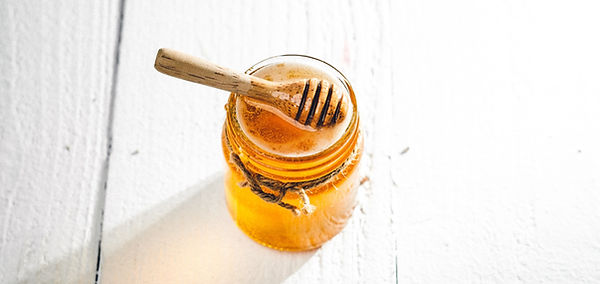
The Authenticity of Manuka Honey
Counterfeit Manuka Honey
Due to its increasing popularity and high market value, counterfeit manuka honey has become a concern in recent years. Counterfeit products labeled as “manuka honey” may not possess the unique properties and health benefits associated with genuine manuka honey.
To ensure the authenticity of your manuka honey purchase, it is crucial to look for products that carry the UMF certification mark. The UMF certification mark guarantees that the honey has been independently tested and meets the standards set by the UMFHA.
Additionally, purchasing manuka honey from reputable brands and retailers known for their commitment to quality and authenticity provides further assurance.
Recognizing Genuine UMF Labels
Genuine UMF-labeled manuka honey will display a distinct UMF certification mark on the packaging or label. This mark indicates that the honey has undergone rigorous testing to determine its UMF rating and certify its authenticity.
To verify the UMF rating, you can also cross-reference the UMF certification mark with the Unique Manuka Factor Honey Association’s official website. This additional step ensures that you are purchasing genuine manuka honey that offers all the unique properties and health benefits associated with this remarkable product.
Manuka Honey Sustainability
Sustainable Beekeeping Practices
Sustainability in beekeeping is crucial to ensure the long-term viability of the honey industry and the conservation of the environment. Sustainable beekeeping practices focus on maintaining the health and well-being of honeybee colonies, preserving natural habitats, and minimizing negative impacts on ecosystems.
Sustainable beekeepers prioritize the welfare of their bees by providing them with a diverse range of forage options and avoiding the use of harmful pesticides. They also practice responsible hive management techniques, such as adequate disease control and hive rotation, to maintain healthy bee populations.
Supporting Conservation Efforts
When purchasing manuka honey, consider supporting brands and beekeepers that actively contribute to conservation efforts. Supporting these initiatives helps preserve the native flora and fauna of New Zealand, which are vital to the production of high-quality manuka honey.
By choosing responsibly sourced manuka honey, you can contribute to the sustainability of the honey industry and the protection of the fragile ecosystems that make the production of manuka honey possible.
In conclusion, manuka honey is a remarkable natural product with unique properties and health benefits. Its origins in New Zealand’s pristine environment, combined with its antibacterial and healing properties, make it a valuable addition to your everyday life. Choosing high-quality, authentic manuka honey and incorporating it into your diet, skincare routine, and home remedies can enhance your overall well-being and offer a myriad of health benefits.
